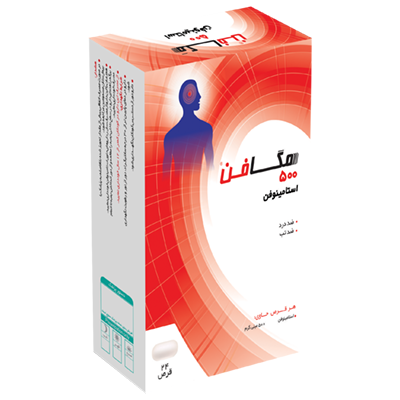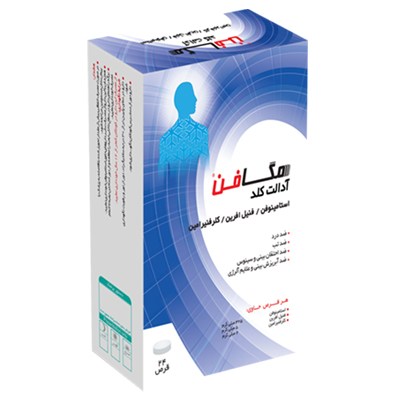You may be wondering what genital psoriasis is. It is a chronic, inflammatory, autoimmune skin disorder that is often characterized by the development of red, scaly plaques. One of the most challenging forms of the disease is genital psoriasis, which occurs in a sensitive area of the body and can cause not only physical discomfort but also significant psychological and social consequences.
Although most patients are embarrassed to express problems related to this area, accurate understanding of the symptoms, causes, and treatment methods of this disease is an important step in improving their quality of life.
What is genital psoriasis?
Genital psoriasis, a type of psoriasis that occurs in and around the genital area. Unlike the common form, this type usually does not have thick scaling, but lesions are often seen as red, smooth, shiny, and tender areas.
This type of psoriasis can affect various parts of the genital area, including the penis, scrotum, labia, external vagina, groin, or perianal area. Due to the sensitive nature of the skin in these areas, symptoms may be more severe and have greater psychological effects. As a result, early diagnosis and appropriate treatment of genital psoriasis is of utmost importance.
Recognizing the symptoms of genital psoriasis
The signs and symptoms of genital psoriasis can be confused with other skin problems of the genital area. The most obvious symptoms include:
- Severe itching and burning: The most common symptom that can disrupt daily activities and marital relationships.
- Shiny redness and inflammation: Unlike typical psoriasis, lesions in this area are not scaly but have a certain shine.
- Superficial sores and painful cracks: especially if scratched or repeatedly in contact with tight clothing.
- Pain during sexual intercourse: which can negatively affect couples' relationships.
- Skin sensitivity: The skin in the area is very thin and prone to irritation, so even using the wrong hygiene products can make the condition worse.
Types of psoriasis affecting the genital area
Psoriasis has various forms, each with different symptoms and severity. In another article, we will discuss it in detail. Common and rare types of psoriasis In this section, we focus on one of the most sensitive types, namely genital psoriasis. This type, due to its location in a delicate and prone to irritation area, requires special therapeutic attention.
Symptoms of genital psoriasis include redness, inflammation, itching, and fine scaling that can be mistaken for fungal infections. Accurately identifying this type and distinguishing it from other skin disorders is key to choosing the right and effective treatment. Here are the most common types of genital psoriasis:
- Inverse psoriasis: Common in skin folds such as the groin and around the genitals. It appears scaly, red, inflamed, and shiny.
- Plaque psoriasis: Sometimes thick, silvery-scaly plaques appear on or around the genital area.
- Erythrodermic psoriasis: A severe and rare type that can affect the entire body, including the genital area, and is considered dangerous.
Seeing pictures of genital psoriasis is important to better understand the condition, but it must be interpreted carefully by a specialist. The lesions usually appear as flat redness, sometimes accompanied by itching or inflammation.
The cause of genital psoriasis: from genetics to environmental factors
Have you ever experienced chronic itching or redness in your genital area that persists despite multiple treatments? In such cases, one of the main suspects may be genital psoriasis, a chronic, complex inflammatory disease that affects not only the skin, but also the mind and social relationships.
Although the exact cause of genital psoriasis is not yet fully understood, a combination of factors such as genetics, environmental triggers, psychological stress, and skin damage play a significant role in its occurrence and exacerbation. In another article, we will discuss in detail about Causes of psoriasis We have paid.
This disorder, despite its simple appearance, is the result of a combination of genetic, environmental, psychological and immune factors; a combination that can lead to the development and exacerbation of sensitive and painful lesions in the genital areas. Genetics is the first pillar in the formation of this disease. People with a family history of psoriasis are at a higher risk of developing genital psoriasis.
In these people, the genes responsible for the immune system's defenses become overactive and mistakenly attack skin cells. But the story doesn't end there. The cause of genital psoriasis is not limited to DNA alone, but also has its roots in repeated contact with factors such as tight underwear, strong chemical detergents, or poor personal hygiene. These environmental factors can act as local triggers, exacerbating the symptoms of the disease.
Stress, anxiety, and psychological pressures are among the hidden but effective forces in exacerbating this disorder. In fact, the skin, as a mirror of the human inner state, responds to psychological disorders, especially in the genital area, with severe reactions. Physical irritations such as repeated scratching or even sexual intercourse in inflammatory conditions can lead to new lesions.
Differences between genital psoriasis and other similar skin diseases
Several conditions can be confused with genital psoriasis, but each has its own unique symptoms. An accurate diagnosis requires an examination by a dermatologist or infectious disease specialist. Here are some key differences:
- Fungal infection:
- Severe and persistent itching
- Unpleasant odor from the area
- Circular lesions with well-defined margins
- Sometimes accompanied by white discharge
- Lichen plan:
- Purple, shiny lesions
- Severe itching sensation
- Usually in the mouth, wrists, and genital area
- Smooth, shiny surface with irregular edges
- Contact dermatitis:
- History of contact with allergens (such as detergents, latex, or tight clothing)
- Dry and cracked skin
- Local redness, inflammation, and burning
- Symptoms improve by removing the trigger.
- Sexually transmitted diseases (such as herpes or syphilis):
- Open sores or blisters
- Pain during urination or sex
- Swelling of surrounding lymph nodes
Genital psoriasis in men and women: differences and similarities
Genital psoriasis differs in men and women in terms of location, symptoms, and clinical effects, and accurate recognition of these is critical for successful diagnosis and treatment. In men, psoriasis most often affects the penis and scrotum. Due to high sensitivity and frequent contact with clothing, these areas are prone to inflammation, itching, and pain, which can affect quality of life and sexual function. To read more about psoriasis in men, see the comprehensive article Psoriasis of the penis in men See.
Despite the differences, the main symptoms of genital psoriasis in both sexes include severe itching, inflammation, and localized sensitivity, which require specialized and careful treatment. The therapeutic approach should be tailored to each individual's specific conditions and needs, and environmental and psychological triggers should also be considered.
In women, genital psoriasis appears more often in the labia, around the vagina, and in the groin. Due to the delicate structure and high sensitivity of the skin, these areas are more likely to experience irritation and sensitivity during sexual contact, which causes many problems for patients. For more information about the characteristics of psoriasis in women, see the article Female genital psoriasis It will be a good source.
Diagnosis of genital psoriasis: methods and tools
Due to its specific location and similarity of symptoms with other skin diseases of the genital area, the diagnosis of genital psoriasis requires careful and multifaceted examination. This process should be performed by a dermatologist to avoid misdiagnosis and inappropriate treatment.
The first and most important step in diagnosis is a careful clinical examination by a doctor. The doctor will directly observe the affected area, looking for features such as redness, shine, absence of thick scaling, and its exact location. This examination helps differentiate genital psoriasis from other common diseases.
Sometimes a definitive diagnosis cannot be made based on observation alone. In this case, the doctor may perform a biopsy or Psoriasis biopsy In this method, a small sample of skin from the affected area is removed and examined microscopically in a pathology laboratory. A biopsy is usually performed in cases where the lesion is suspicious, does not respond to treatment well, or there is a possibility of similar diseases such as lichen planus or dermatitis. This test is considered one of the most accurate diagnostic methods for genital psoriasis and allows for the examination of the cellular structure of the skin.
In some cases, the doctor may order additional tests to rule out other conditions. These tests include fungal tests such as KOH, tests for sexually transmitted diseases, and in some cases, blood tests to assess the body's immune status.
The key difference between genital psoriasis and infectious diseases is its non-contagious, inflammatory nature. Therefore, performing additional tests helps the doctor rule out infectious diseases such as herpes or syphilis and prescribe appropriate treatment.
4 Ways to Control Genital Psoriasis; Topical and Systemic Solutions
Controlling genital psoriasis requires more than a simple pharmaceutical approach, and requires a comprehensive understanding and application of a set of targeted, scientific, and individualized strategies. Although the cause of genital psoriasis can be rooted in a variety of factors, including genetic and environmental factors, what is more important is developing an effective treatment plan to control and reduce its symptoms.
Strategies for managing and controlling genital psoriasis are divided into four main categories, which are used singly or in combination, depending on the severity of the disease and the individual's body's response:
- Topical creams and ointments: The first line of defense against local symptoms of the disease. Low-to-moderate strength corticosteroid creams such as Mometasone ointment and Mometasone cream, are very effective in reducing inflammation and itching. Using calcipotriol cream and fragrance-free and dye-free moisturizers also play a role in improving skin barrier function and reducing irritation.
- Phototherapy: For people who do not respond to topical treatments, controlled UVB light can be a powerful source of inflammation reduction and faster healing of skin and genital psoriasis. This procedure should be performed under the supervision of a specialist to avoid further irritation of the area.
- Systemic or biological therapies: In severe or treatment-resistant cases of genital psoriasis, medications such as cyclosporine, methotrexate, or targeted biological drugs such as TNF-alpha inhibitors can produce a significant therapeutic response.
- Supportive care: Lifestyle changes play a crucial role. Wearing loose, cotton clothing, keeping the genital area dry at all times, avoiding the use of perfumed or strong detergents, and avoiding mechanical irritation of the skin are among the vital measures in addition to drug treatment for genital psoriasis.
Genital psoriasis and marriage
Having genital psoriasis should not prevent you from getting married or living together. With proper treatment and support from your partner, it is possible to maintain a healthy and satisfying relationship. The most important thing is honesty, education, and mutual support in managing the disease. Using lubricants, avoiding contact during flare-ups, and seeing your doctor regularly are recommended.
If your question is, is psoriasis contagious? The answer is no. Psoriasis is a non-contagious and completely non-contagious disease. Genital psoriasis is not transmitted through skin-to-skin contact, sex, or sharing personal items. Proper education of sexual partners or those around them can help reduce stigma and better understand the patient's condition.
Final conclusion
Despite being hidden, genital psoriasis has a wide-ranging impact on quality of life. Recognizing the symptoms, correct diagnosis, targeted treatment, and lifestyle modification are the essential pillars of controlling this disease. Awareness and social acceptance also play an important role in reducing the psychological burden of patients. With continued care and support from those around them, affected individuals can experience active, healthy, and satisfying lives.
Diagnosis of this disease, especially in the genital area, requires a careful clinical examination, and simply looking at a photo of genital psoriasis is not enough to determine the type or severity of the disease. Self-treatment can aggravate symptoms or lead to mistakes in choosing treatment. Therefore, to effectively control and prevent possible complications of this condition, following specialist advice and regular treatment under the supervision of a dermatologist is essential and cannot be overlooked. Scientific management is the key to a quality life for psoriasis patients.
Comprehensive and specialized material has been provided to help you understand psoriasis more fully and become familiar with important details such as its cause, prominent symptoms, different types of the disease, and accurate diagnosis methods. Study These resources It can give you a broader perspective on this complex disease and help you to complete your knowledge in the management and treatment of this disease. This basic knowledge will be an effective step on the path to improving and better controlling your condition.




